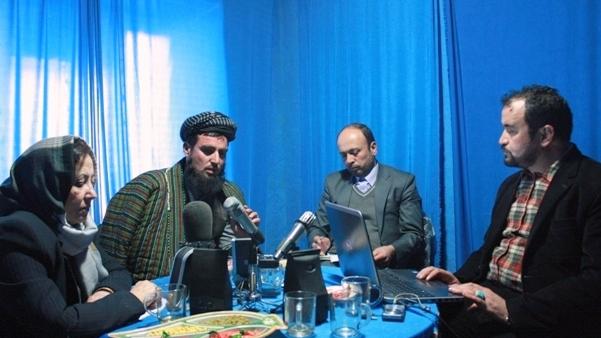KUNDUZ - To prevent and combat corruption from Afghanistan, civil society must play an active role said participants during a UN-backed radio series aired in the northeastern region recently.
Supported by the Kunduz regional office of the UN Assistance Mission in Afghanistan (UNAMA), the radio series highlighted the important role of civil society in promoting good governance, encouraging transparency, preventing and fighting corruption in public institutions.
Saifuddin Sayees head of the Badakhshan Civil Society Forum and a panelist in one of the programmes said that corruption has become part of the culture of the region and that civil society has the duty to intervene and stop the loot of public resources.
“Unfortunately corruption in all its forms - misuse of authority, embezzlement and falsifying - has become part of our culture - Sayees stated and called for stronger civil society coordination in order to monitor and counter corrupt activities in local and provincial institutions.
According to independent research, Afghanistan is one of the most corrupt countries in the world, affecting every segment of Afghan society, including business practices, government services, rule of law and justice. A UNAMA report, released earlier this year, found that Afghan authorities have made progress in the fight against corruption, but indicated that challenges remain.
“For the sake of the country’s future, corruption in Afghanistan must be addressed and eliminated,” said Tadamichi Yamamoto, the UN Secretary-General’s Special Representative for Afghanistan, in launching the report called ‘Afghanistan’s Fight Against Corruption: The Other Battlefield.’
“The United Nations welcomes the progress already made, and fully supports the government’s ongoing efforts to fight corruption in the interest of ending impunity, ensuring accountability and transparency, and restoring integrity to the management of public services, finances and natural resources,” the UN envoy said.
But Abdul Malik Anwari, the prosecutor in Badakhshan Attorney Office said that the government and provincial authorities are committed to fighting corruption. “In the last five years, we have registered forty-eight cases from various departments in the province and most of which have been prosecuted” he said.
UNAMA has been supporting and working with radio and television partners in the northeastern region and other parts of the country, through technical assistance and outreach programmes aimed at engaging and providing platforms for communities to discuss issues that affect them. The radio series were produced and aired by radio partners - Radio Banowan, Radio Shabnam and Radio Sana - to an estimated population of 600,000 in Badakhshan, Kunduz and Baghlan, provinces.
UNAMA is mandated to support the Afghan Government and the people of Afghanistan as a political mission that provides 'good offices' among other key services. 'Good offices' are diplomatic steps UN takes publicly and in private, drawing on its independence, impartiality and integrity, to prevent international disputes from arising, escalating or spreading.
UNAMA also promotes coherent development support by the international community; assists the process of peace and reconciliation; monitors and promotes human rights and the protection of civilians in armed conflict; promotes good governance; and encourages regional cooperation.






